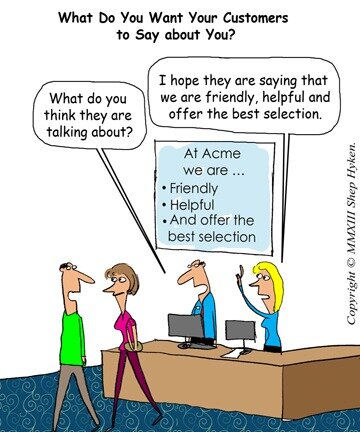
Comparing the average cost of an accountant in your industry also highlights if you’re paying fees that are too high. You don’t want to spend the majority of your workday on accounting tasks. Use a simple software solution to record transactions quickly. Finding the balance between time and money spent on your books will help you keep accounting costs on track. The average accounting fees for a small business depend on the kind of financial professional used. A bookkeeper helps with tasks like recording transactions, processing payroll, invoicing customers, and balancing your books.
Enrolled Agents and CPAs have to take an exam and fulfill certain designation requirements to receive their respective designations. Meanwhile, tax preparers may work solely on preparing tax forms since they don’t have the educational experience or credentials to provide additional accounting services. Typically, accounting firms charge an average fee of about $70 for filing W-2 forms and $68 for 1099 forms.
Rachel Blakely is a content writer for Patriot Software, LLC, a provider of online accounting and payroll software for small business. At Patriot, she enjoys providing actionable, growth-oriented information for small business owners. If your business is still in its first year or so, chances are you aren’t thinking about hiring anyone, especially a business accountant, regularly. But those few months in early spring when you have to prep taxes?
Should I hire a small business accountant for my company?
Accountants and CPAs help with more advanced tasks, such as filing small business taxes, generating statements, analyzing costs, and giving advice. While larger enterprises can afford to pay professionals for their accounting, paying an accountant might be out of your budget. There several accounting software options you can use to run your accounting services. The best Paid Telephone Bill Journal Entry accounting software will help track your business income and expenses, prepare taxes and give reports on your financial status. An example is Zoho Books, which offers advanced features, such as time tracking and project accounting. The cost of accounting might greatly depend on how you keep your books and the character of your relations with accounting specialists.
In this article, we’ll explain how accountants calculate their costs and the average cost of an accountant to help you decide if hiring an accountant is the right decision for your business. For this benefit, calculate the potential financial gain you could earn by using the CPA’s planning advice. An accountant can help you pinpoint wasteful expenditures as well as opportunities for you to save cash.
- We love working with small businesses and partnering to make them successful.
- Each form will likely cost a few hundred dollars if you’re paying an accountant or CPA to do it for you.
- Again, the average amount an accountant charges depends on their pricing structure.
- Also, hiring a face-to-face accountant comes with some additional costs like office space, equipment, and transport.
An accountant can explain tax structures, registration requirements, and more. You can also hire an accountant to help you create your business plan, a necessary asset for decision-making and investments. Main Street Launch is excited to feature a guest post from Rachel Blakely.
What are the peculiarities of bookkeeping for small businesses?
For more information, check out the best online bookkeeping services for small businesses. Now, let’s say you need other accounting services besides tax preparation. Again, the cost depends on the complexity of your business and your specific need.
If you work for yourself, an accountant may be more expensive. The typical accounting fees for small business fall between $1,000 to $5,000, according to the poll. If you’re a new business owner, don’t forget to factor accounting costs into your budget.
- An accountant can help you pinpoint wasteful expenditures as well as opportunities for you to save cash.
- There are many tasks you can do on your own when it comes to running your small business.
- Though these costs do not convert into cash, they are necessary for running your business.
- You’ll need to pay higher rates for these accreditations since they portray credibility.
The Certified Public Accountant (CPA) is a highly trained and licensed professional. They provide a wide range of services, including financial planning, tax preparation, and auditing. CPAs typically charge higher fees than other types of accountants due to their level of expertise and qualifications. As your business grows it will be necessary to hire an accounting firm. Way before that happens you should already have your own accountant.
How Flexible Scheduling and Remote Work Influence Traditional Time Management
There, you can verify their credentials and track their license renewal dates. There is also free accounting software with unlimited invoicing and mileage tracking features. With these accounting software platforms, you can handle your accounting activities yourself. Growing small businesses inevitably meet the challenge of their internal accounting methods no longer being sustainable. The hallmarks of small business accounting are not necessarily positive.
For example, if you require them for tax planning and filing, payroll management, auditing and consulting, they will charge you more than when all you need is tax preparation. It really depends on the amount of small business accountant fees you’re currently paying and the specific financial needs of your company. Some businesses need accountants to manage more aspects of their finances than others.
If you have employees, it’s advisable to hire a bookkeeper at least part-time to manage the payroll. According to the SCORE report, average accounting fees for a small business end up being around $1000-$5000 a year. When you hire an accountant, you can save on time, money, and resource, giving you more flexibility and energy to pour into other parts of your business. Our free quote comparison tool matches you up with accounting firms that are suited to your business.
You can focus on growing your company as they take care of the financial necessities. Before you hire one, it’s important you know the cost of an accountant for a small business to ensure you’re getting a good deal. The National Society of Accountants (NSA) reports that the average fee to file individual taxes with no itemized deductions is $176. Businesses have more tax requirements, complicated forms, and accounting needs. Cost varies based on the type of business and forms you are filing, but the tax return costs above are a good estimate. While doing accounting and business taxes, you may worry about making mistakes or missing opportunities that a pro would spot right away.
How much does it cost to have an accountant for a small business?
Accountants’ rates vary based on their experience and skill level. Some accountants charge more than others, depending on the type of work they do and their background. Look around and compare prices while finding an accountant for small business. They can point out the best course of action for funding your venture and help you select small business loan services if needed. If there are problems with cash flow in your company, an accountant can provide their financial expertise. If you are just starting your business, you might need help choosing a business structure (e.g., sole proprietorship).
The National Society of Accountants conducts a periodic survey asking members to provide information on the average costs and fees for tax preparation and additional accounting services. Yes, one of the main ways to cut the cost of an accountant for a small business is to carry out some tasks yourself. This way you can ask fewer tasks of them, so they charge lower fees. Many start-up and small business owners begin this way, but as your company grows it can eat into your valuable time. A good way to assess the average cost of an accountant for small businesses is to research your competitors to find out how much they pay in legal and accounting fees.
You also may want to consider whether you prefer working with an individual or an accounting firm. Jariwala points out that a one-person shop might be ideal if your needs are straightforward since the same person will be able to address your needs. NFIB is a member-driven organization advocating on behalf of small and independent businesses nationwide.
The services a business needs will depend on its size and business structure. The above services will typically be included in most accounting packages for businesses. Another thing that affects the cost of an accountant is how they set their rates. Depending on the services they provide your business or the type of accounting, they will have different rates. In that case, you might only need to hire an accountant during tax season or for a limited time monthly, which will decrease the costs.
If you’re just at the beginning of your business venture, it’s never too early to get started with bookkeeping. With doola specialists right at your fingertips, it’s never been easier to manage, run, and grow your business with financial solutions to scale. DIY accounting can be complicated, but it’s suitable if you’re a start-up or a very small business. It’s important to open up a business bank account so you can accurately separate your personal and business records to make things easier to document. Payroll can be complex, but software can make the process a lot easier with reporting and automations. You can access free payroll software when you have relatively few employees, however as your business grows and your employee numbers increase, there will usually be a cost attached.

